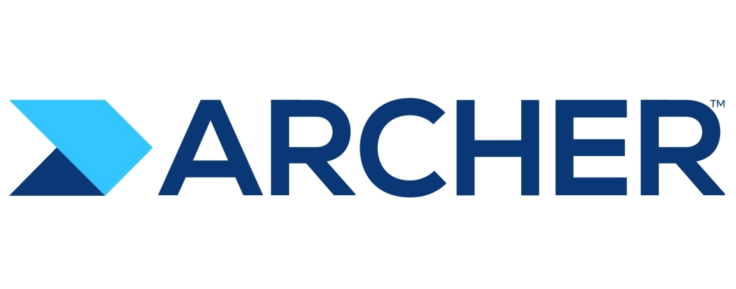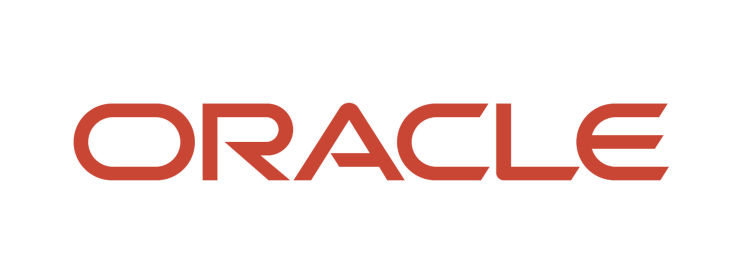5 Best Business Continuity Software of 2023
The concept of continuity for businesses lies in their ability to sustain operations and deliver products or services consistently, even in the face of disruptions or unexpected events. With the unpredictability that comes with each day, the long-term sustainability of businesses often depends on their ability to overcome challenges, minimize downtime, and protect their revenue, reputation, and relationships with customers and stakeholders.
To achieve this, there is a need to implement efficient continuity infrastructure to ensure operational stability and position themselves for long-term success in a rapidly changing business market. Enter business continuity software.
Business continuity software, or business continuity management (BCM) software, is a tool or system designed to assist organizations in managing and maintaining their business continuity plans and activities. It provides a framework and innovative features to assist businesses in preparing for and recovering from unforeseen, disruptive events, such as cyber-attacks, natural disasters, equipment failures, or other incidents that may disrupt normal business operations.
Functionalities of Business Continuity Software
The primary goal of business continuity software is to enhance an organization's preparedness and resilience by providing a centralized platform for managing all aspects of business continuity planning and execution. In achieving these goals, these platforms offer specialized functionalities that streamline various elements of business continuity planning and execution.
● Business Impact Analysis (BIA)
This critical feature helps businesses assess the potential impact of disruptions on their business operations. The BIA feature assists organizations in understanding the significance and possible consequences of disruption to their key processes, systems, and resources. This systematic analysis usually features several steps, from identifying critical business functions to impact assessment, dependencies and interdependencies, RTO and RPO, risk prioritization, and decision support.
● Risk Assessment
The risk assessment feature of business continuity software helps organizations identify, evaluate, and prioritize potential risks and threats capable of disrupting their operations. Business continuity software assesses risks through several components, including risk identification, evaluation, vulnerability analysis, prioritization, and mitigation strategies.
● Plan Development
With the plan development feature, businesses can create, document, and maintain their continuity plans. This includes managing plan templates, documentation, customization and flexibility, collaboration and version control, plan maintenance and review, document repository, and accessibility. The plan development feature often integrates with other systems for automation and seamless data sharing.
● Incident Management
Incident management feature helps organizations to effectively manage and respond to incidents or disruptions that affect their operations. By leveraging this feature, organizations can respond to incidents, minimize the impact on operations, and ensure a coordinated and efficient response.
● Notification and Communication
With this feature, organizations can quickly and efficiently communicate with stakeholders during incidents and disruptions. The notification and communication feature facilitates rapid, targeted, multi-channel organizational communication. It also permits message tracking and reporting and integration with contact management.
● Testing and Exercising
This feature enables businesses to test and exercise their continuity plans in a controlled and simulated environment. It provides tools and functionalities to create scenarios, simulate incidents and evaluate plan effectiveness. Organizations can identify gaps, validate their plans, and enhance their preparedness by conducting these tests.
● Reporting and Analytics
The reporting and analytics feature allows organizations to generate comprehensive reports and analyze data related to their business continuity efforts. It offers insights into plan status, testing results, incident response metrics, and key performance indicators.
5 Best Business Continuity Software of 2023
Exploring the multitude of choices regarding business continuity software solutions can be daunting. As such, we have handpicked a collection of top-tier solutions that have earned extensive recognition among businesses of all scales. Our list aims to simplify your search process and offer valuable insights into the premier software options for maintaining business resilience and continuity.

● Archer Business Resiliency
With the Archer Business Resiliency platform, organizations can identify and document their essential processes and systems while creating comprehensive business continuity and disaster recovery plans to safeguard against disruptions.
The platform encompasses incident management functionalities, enabling businesses to swiftly assess incident severity, establish suitable response strategies, and assign response teams based on specific factors, such as business impact and regulatory obligations. Other features include operational risk management, BIA, crisis management, IT disaster recovery, alerts, and notifications.
Furthermore, the Archer Business Resiliency platform adopts a unified and automated approach to business continuity and disaster recovery planning, testing, and implementation. Ultimately, this web-based solution integrates business continuity planning, disaster recovery strategies, and crisis response, enhancing organizations' response time and prioritizing critical business processes.

● Fusion Risk Management
The Fusion Framework System is a comprehensive risk management platform that gives businesses better control over their experience through various customizable and flexible tools. With this innovative solution, companies can harness the power of data-driven risk insights and resilience strategies, thereby facilitating continuous improvement of business operations.
The Fusion Risk Management platform offers several innovative features, including risk management, third-party risk management, business continuity management, crisis or incidence management, operational resilience, audit management, and audit trail. It is also effective for managing cyberattacks and other IT incidents.
Furthermore, this platform empowers users to establish, prioritize, and sustain impact tolerances, allowing them to gain valuable insights over time regarding their organization's capacity to withstand various disaster scenarios. It is available on the web, iOS, and Android platforms.

● Cloudback
Cloudback is a comprehensive backup solution to protect valuable codes and metadata on GitHub. This platform offers strong protection against data loss caused by unexpected events, granting users peace of mind and enabling them to concentrate on other projects.
Once activated, Cloudback handles several tasks, including creating daily backups and ensuring your repositories fully secured. With its user-friendly interface and range of powerful features, Cloudback simplifies the management and protection of your repositories.
One such feature is its flexible storage options. Cloudback integrates seamlessly with various customer-managed storage solutions, from Azure to OneDrive, Amazon S3, Google Cloud, Alibaba Cloud, and OpenStack Swift. The platform also integrates regional storage locations to enhance data protection and compliance with data sovereignty requirements, ensuring backups remain within a user's preferred geographic region.
Cloudback's data deduplication technique significantly reduces cloud storage space usage and operational costs by identifying and eliminating duplicate data. Businesses can also benefit from the platform's custom schedules, allowing users to create, customize, and implement personalized backup schedules according to specific needs.
Furthermore, Cloudback employs AES-256 encryption techniques to protect your data in transit and rest, ensuring sensitive data remains secure. The Cloudback platform also provides an intuitive user interface, comprehensive customer support, and a direct payment option for GitHub Enterprise accounts.
Ultimately, Cloudback's GitHub Repository Backup solution thoroughly protects your valuable code and metadata. Its intuitive user interface and powerful suite of features streamline the entire process of managing and safeguarding your repositories. Experience comprehensive and secure protection by signing up for Cloudback's GitHub Repository Backup solution today!

● Oracle Risk Management and Compliance
The Oracle Risk Management Cloud and Compliance platform provides businesses with a comprehensive suite of tools for advanced security and transaction monitoring. It enhances financial controls, ensures the separation of duties, mitigates fraud risks, and streamlines organizational audit workflows.
This platform enables users to explore a risk-intelligent culture within their organization by facilitating collaboration with business owners through periodic surveys, assessments, and dashboards. Moreso, users can leverage its analysis and context features to accurately assess risks and determine the most appropriate course of action.
Other features present in this solution include a risk repository, audit management, automated workflows, issue detection, sensitive access certification, and prebuilt and customizable security rules. With this AI-powered compliance and risk management solution, organizations can identify potential risks and automate advanced security and transaction analysis to prevent fraud and enhance financial control.

● Castellan Solutions
Castellan Solutions offers innovative business continuity software designed for organizations of all scales. This Software-as-a-Service (SaaS) platform empowers users to address operational resilience, crisis management, and emergency notification challenges through automation and intelligence, all within a centralized location.
The platform features fully integrated functionality for conducting BIA, risk assessment, and plan development. Users can also establish personalized continuity requirements and generate visualizations that comprehensively overview the entire value chain. It also features strategy testing and exercising, program automation, system integration, embedded alerts, and emergency notifications for enhanced responsiveness.
Castellan Solutions is a comprehensive and integrated planning experience platform that empowers users to interpret, analyze, and prioritize risks and enables them to formulate strategic and actionable responses effectively.
Conclusion
The list of business continuity software solutions represents the best options in 2023, with each platform providing unique features and strengths. Whether it's the comprehensive risk management capabilities of Archer Business Resiliency, the customizable tools and data-driven insights offered by Fusion Framework System, or the all-in-one backup solution provided by Cloudback, these software solutions cater to diverse organizational needs. Organizations seeking to enhance their resilience and minimize operational disruptions can confidently choose from this list of exceptional software solutions.





















